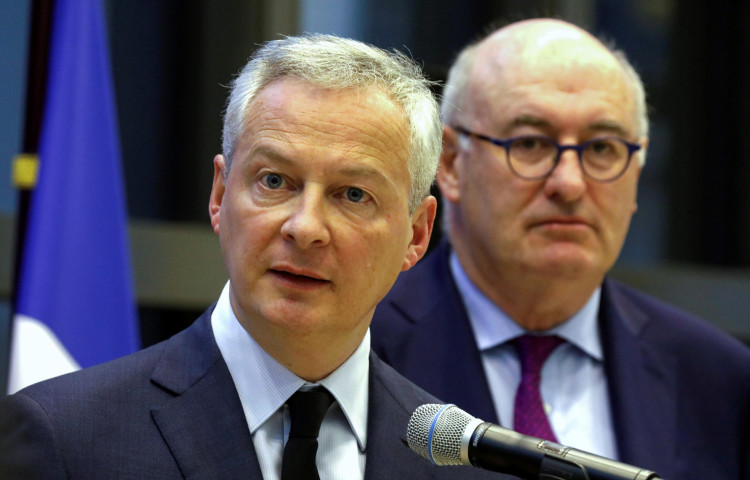Lebanon is on the brink of economic collapse and France just gave it an economic lifeline. Apart from France, no other country thus far has stepped-up to offer any kind of aid to the crumbling Lebanese economy.
Minister of the Economy and Finance Bruno Le Maire said France is ready to support Lebanon financially, bilaterally or multilaterally as the latter fights its way through its worst economic crisis in three decades. Lebanon was once a part of the French colonial empire.
"France always stands ready to help Lebanon," said Le Maire Sunday at the end of a meeting of finance officials from the Group of 20 (G20) major economies. "It has always been the case in the past and it will be the case in the future. If there is any help required from Lebanon, France will be there."
Le Maire, however, warned against mixing economic recovery in embattled Lebanon, a reference to the Trump administration's campaign to counter Iran in the region. Lebanon, which is Shia Muslim, is an ally of Iran. The Trump administration has made no moves to help Lebanon in any way.
Le Maire said decisions by Lebanon's government are urgently needed to improve the steadily deteriorating economic situation. He said France wants to move in the official fora and thinks the International Monetary Fund (IMF) might have a role to play. Le Maire again said if there is any need for help, "either bilateral or multilateral, we stand ready to help."
The economic and financial crises battering Lebanon is increasing in intensity with some local economists now openly predicting a collapse of its shrunken economy within a few months. The newly installed government of prime minister Hassan Diab, criticized by street protestors as among the corrupt elite that caused Lebanon's economic collapse faces a herculean task in preventing Lebanon from becoming a failed state. Diab's government took office last month with the backing of Hezbollah, the Iranian-backed Shi'ite group, and its allies.
Massive street protests throughout Lebanon that began Oct.17, 2019 continue to this day and eventually ignited the country's political collapse. The protests railed against the sectarian rule, the stagnant economy, massive unemployment and endemic corruption in government. Worsening the 45% spike in prices was a 40% reduction in salaries.
Since protests broke out in October, Lebanon's currency (the Lebanese lira) has slumped by 60%. U.S. dollars, to which the lira is pegged, have become scarce, driving up prices. Lebanon has the world's highest debt-to-GDP ratio at 160%.
On the other hand, Saudi Arabia is conditioning any aid to Lebanon -- where GDP per capita sunk to its lowest since 2008 -- on a realistic reforms plan to tackle endemic corruption and financial mismanagement.
Western and Sunni-led Gulf Arab states that helped Lebanon before have made abundantly clear any support hinges on Lebanon's new government implementing long-delayed reforms that address the root causes of the economic collapse such as state corruption and bad governance.
Saudi Finance Minister Mohammed al Jadaan said he's monitoring the situation in Lebanon as it unfolds and is in contact with allies and international bodies to coordinate any support for Lebanon based on economic reforms proposed by the new government.
"Saudi Arabia has been a strong supporter of Lebanon for decades, it's not new, but we are watching what is happening at the moment," said al Jadaan to CNBC. "We are talking to the IMF and others -- we want to see a reform plan that is viable and doable and then we will take action."
He said Saudi Arabia wants "to see a very clear reform plan that is doable, viable, accepted by the IMF and the supporting countries, and we will obviously assess it and stand ready."
The World Bank recently warned of an implosion in Lebanon's highly leveraged economy. The yield on Lebanon's Eurobonds maturing March 9 has surpassed an incredible and unheard of 1,000%. One-third of the country's bonds are held by foreign investors.
Lebanese government officials are now seeking IMF advice on how to proceed, including how to manage its $30 billion in international bonds. Local and international investors are resigned to default on the Eurobond payment of $1.2 billion due March 9, which will have catastrophic effects on the already maimed economy.
More bad news: Moody's and S&P Global Ratings downgraded Lebanon's long-term foreign currency rating to Ca and CC, respectively. These new downgrades are 10 steps below investment grade.






